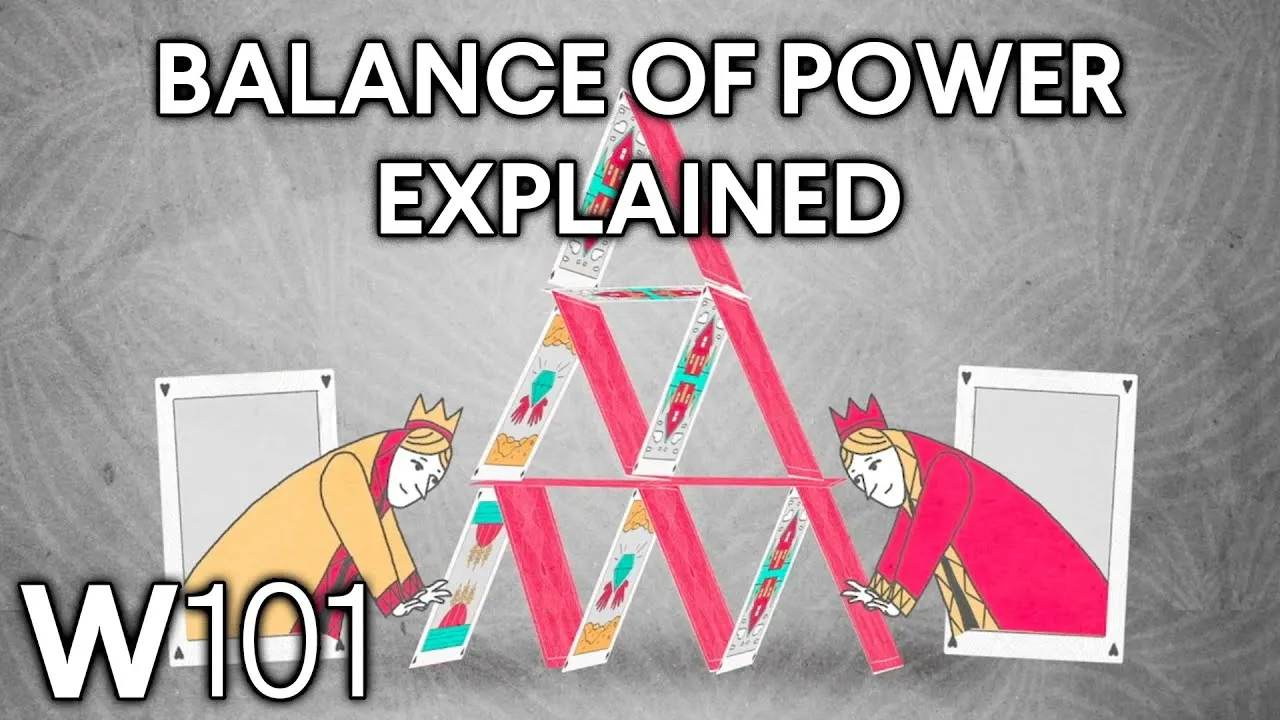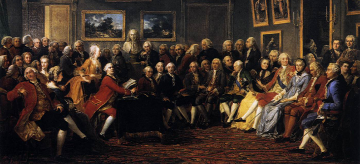How Do Countries Decide Whether to Go to War?
Learn how balances and imbalances of power contributed to World Wars I and II in this historical video.
Most people wouldn’t pick a fight with someone twice their size. The same goes for countries. But although we can judge a potential opponent by their height and weight, countries’ leaders—in theory—consider the balance of power.
What is the balance of power?
Balance of power is a measurement of the relative strength between countries, comparing their militaries, resources, wealth, populations, and relationships with other countries. When that relative strength is more even—or balanced—those countries are less likely to fight each other because the costs of war would likely outweigh the expected benefits. But when the relative strength is less even—or imbalanced—stronger countries could be tempted to attack weaker ones if they expect the benefits from war to outweigh the costs.
However, such theory doesn’t always translate into reality. Imbalanced countries can avoid war and well-balanced countries can still fight wars. This video explores how balances and imbalances of power contributed to two of history’s greatest conflicts: World Wars I and II.
Video Transcript: The Balance of Power Explained
Most people wouldn't pick a fight with someone twice their size. The same goes for countries. But while we can judge a potential opponent by their height and weight, countries' leaders, in theory, consider the balance of power. It's a measurement of the relative strength between countries—comparing their militaries, resources, wealth, and population, as well as their relationships with other countries.
When that relative strength is more even, or balanced, those countries are less likely to fight each other because the expected benefits of war would likely be smaller than the costs. But when that relative strength is less even, or imbalanced, the stronger of the countries might be tempted to attack the other, because the stronger one might expect the benefits from war to outweigh the costs.
However, imbalanced countries can avoid war, and well-balanced countries still fight wars, because there are many other factors that determine whether countries act aggressively towards each other. The First World War provides one of history's most enduring examples of this idea, when the fairly even balances of power between countries in Europe at the beginning of the 20th century weren't enough to prevent conflict from breaking out.
Before World War I, in the 1800s, there was a decades-long era of relative peace in Europe, when the major countries maintained rough balances of power amongst themselves. And while they occasionally fought with each other, they typically avoided massive wars over one another's principal territories. It extended into the early 1900s, when the rough balances of power were largely maintained as Britain and Germany became the strongest countries in Europe. Both had large populations and economies, robust militaries, and strategic partnerships with other countries.
Germany formed an alliance with Italy and Austria-Hungary. All three agreed that if a member were attacked by certain countries, each would help the other attacked country in various ways. These defensive partnerships increase the members' strength relative to countries outside the alliance. But Britain, France, and Russia established a similar partnership, and power remained roughly balanced between the two groups. For each of these six countries, the costs of starting a war far outweighed the potential benefits.
However, in 1914, leaders miscalculated those costs and benefits as they responded to a political assassination, recklessly escalating the situation in Europe, until they dragged their alliance networks — and many countries across the world — into a brutal, costly war for four long years that settled little and in which the costs far exceeded any benefits.
While a balance of power isn't enough to stop countries from fighting, an imbalance can certainly encourage aggression, as was seen in the lead-up to the Second World War. After World War I, the victors — Britain, France, and the United States — all exhausted by war, reduced the size of their militaries and placed limits on the warships they could build. The victor's wartime enemies had been defeated. But by the early 1930s, the military balance began to disappear as Germany, in particular, increased its military might.
British and French leaders called on Germany to stop, but wouldn't back up any of their complaints with force. This undermined the credibility of their threats and promises and further undermined the balance of power. The new imbalances encouraged Germany to act aggressively. Germany's leader, Adolf Hitler, repeatedly violated the terms of the peace treaty from the end of the First World War by openly rebuilding the country's military and expanding German territorial control into neighboring countries.
If Britain and France had worked to maintain the balances of power, they might have checked Hitler's aggression with credible threats of military retaliation. Instead, they accepted Hitler's demands with the hope that if Germany was satisfied, it would remain peaceful. This approach is referred to as appeasement, and it signaled to Hitler that Britain and France had no political will to defend their partners, further eroding their credibility and encouraging Hitler to continue his campaign of aggression.
British and French leaders belatedly realized their error and started making more of an effort to counter Germany by signing on to a defense agreement with neighboring Poland. But it was too late to significantly alter the imbalance. In 1939, Hitler continued his German expansion by invading Poland, at which point Britain and France declared war on Germany, marking the start of World War II, the deadliest conflict in human history.
Imbalances of power can encourage aggression, and balances can encourage peace. Ultimately, though, it's up to countries' leaders to accurately assess the balances of power that exist and to do what is necessary to maintain them. When they miscalculate, or fail to maintain military balances, or underestimate the cost of war, the consequences can be devastating.



